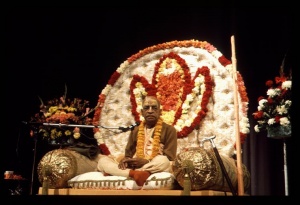CC Adi 15.10: Difference between revisions
No edit summary |
(Vanibot #0054 edit - transform synonyms into clickable links, which search similar occurrences) |
||
| Line 17: | Line 17: | ||
<div class="synonyms"> | <div class="synonyms"> | ||
''śacī kahe'' | ''[//vanipedia.org/wiki/Special:VaniSearch?s=śacī&tab=syno_o&ds=1 śacī] [//vanipedia.org/wiki/Special:VaniSearch?s=kahe&tab=syno_o&ds=1 kahe]'' — mother Śacī said; ''[//vanipedia.org/wiki/Special:VaniSearch?s=nā&tab=syno_o&ds=1 nā] [//vanipedia.org/wiki/Special:VaniSearch?s=khāiba&tab=syno_o&ds=1 khāiba]'' — I shall not take; ''[//vanipedia.org/wiki/Special:VaniSearch?s=bhāla&tab=syno_o&ds=1 bhāla]-i [//vanipedia.org/wiki/Special:VaniSearch?s=kahilā&tab=syno_o&ds=1 kahilā]'' — You have said very nicely; ''[//vanipedia.org/wiki/Special:VaniSearch?s=sei&tab=syno_o&ds=1 sei] [//vanipedia.org/wiki/Special:VaniSearch?s=haite&tab=syno_o&ds=1 haite]'' — from that day; ''[//vanipedia.org/wiki/Special:VaniSearch?s=ekādaśī&tab=syno_o&ds=1 ekādaśī]'' — Ekādaśī day; ''[//vanipedia.org/wiki/Special:VaniSearch?s=karite&tab=syno_o&ds=1 karite] [//vanipedia.org/wiki/Special:VaniSearch?s=lāgilā&tab=syno_o&ds=1 lāgilā]'' — began to observe. | ||
</div> | </div> | ||
Latest revision as of 18:30, 19 February 2024

A.C. Bhaktivedanta Swami Prabhupada
TEXT 10
- śacī kahe,—nā khāiba, bhāla-i kahilā
- sei haite ekādaśī karite lāgilā
SYNONYMS
śacī kahe — mother Śacī said; nā khāiba — I shall not take; bhāla-i kahilā — You have said very nicely; sei haite — from that day; ekādaśī — Ekādaśī day; karite lāgilā — began to observe.
TRANSLATION
Mother Śacī said, “You have spoken very nicely. I shall not eat grains on Ekādaśī.” From that day, she began to observe fasting on Ekādaśī.
PURPORT
It is a prejudice among smārta-brāhmaṇas that a widow must observe fasting on Ekādaśī but a woman who is sa-dhava—who has her husband—should not. It appears that before Lord Caitanya’s request, Śacīmātā, being sa-dhava, was not observing Ekādaśī. Śrī Caitanya Mahāprabhu, however, introduced the system that a woman, even if not a widow, must observe the Ekādaśī day and must not touch any kind of grains, even those offered to the Deity of Viṣṇu.